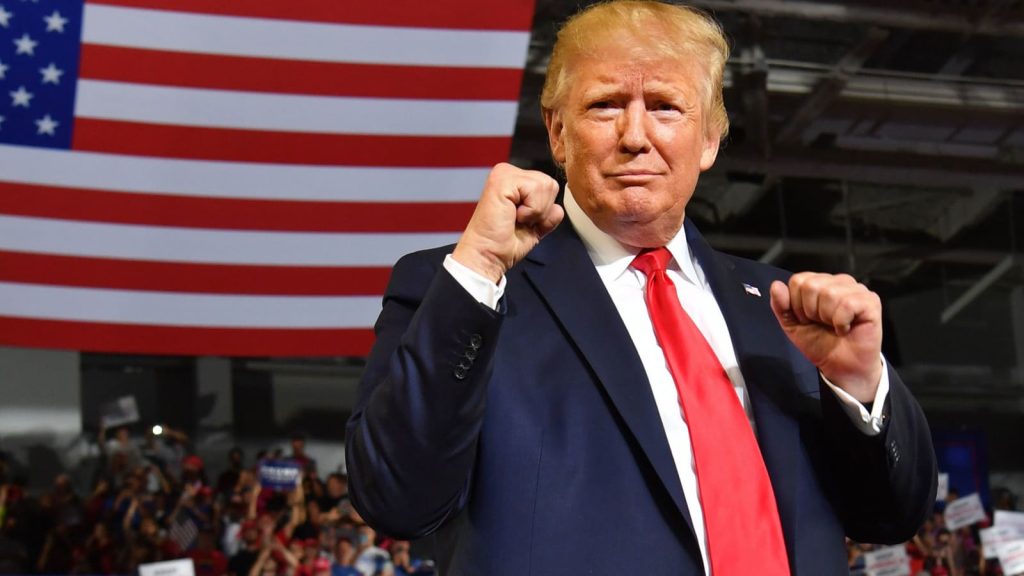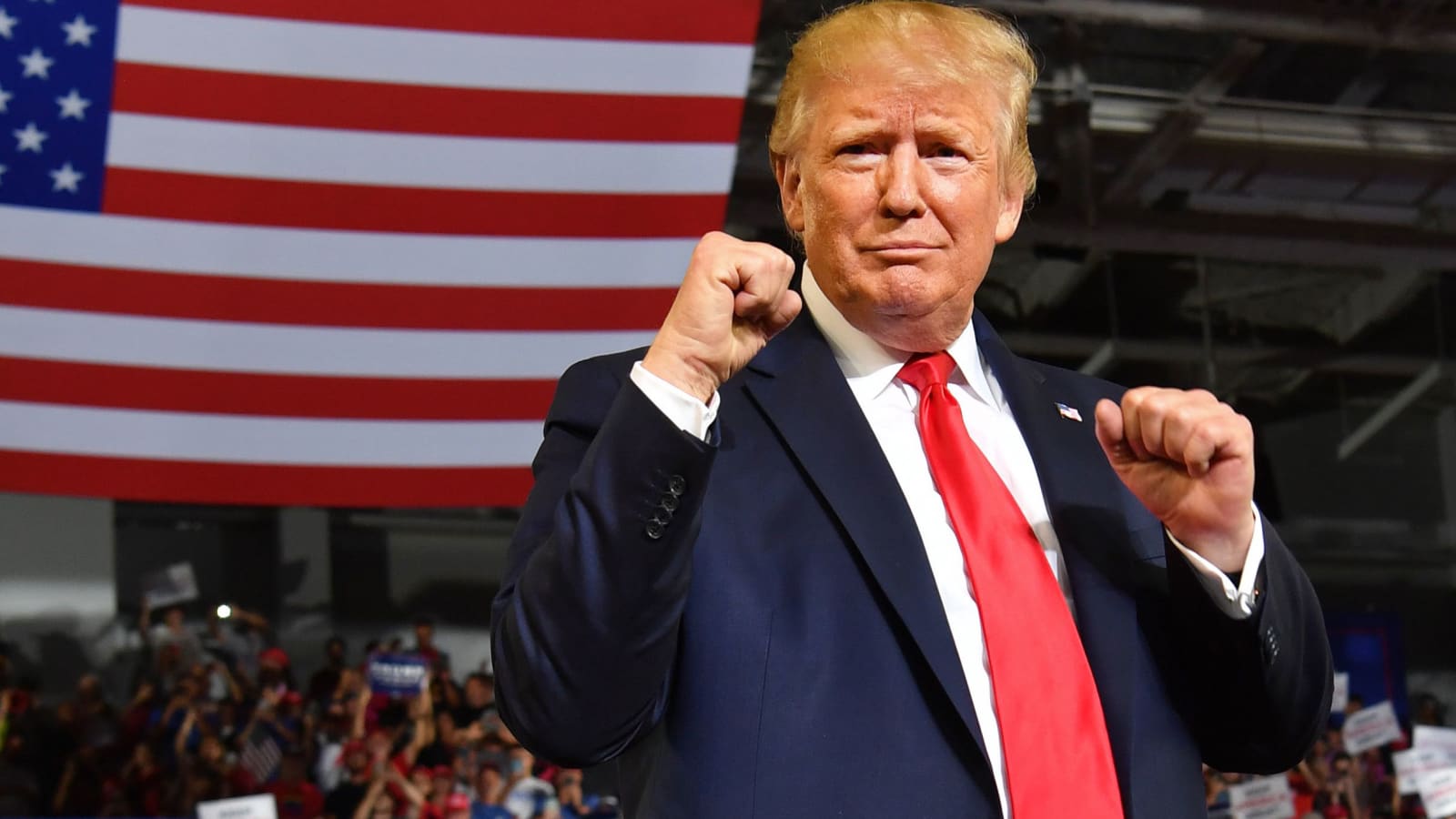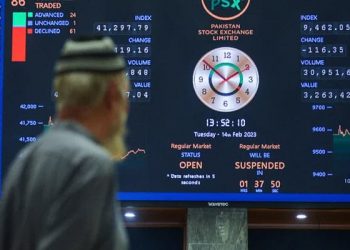Donald Trump’s foray into the social media arena with Truth Social is poised to take a significant leap as shareholders of Digital World Acquisition Corp. (DWAC) approved its public listing. This move, unlocking a potential $3bn windfall for the former US president, marks a pivotal moment amidst mounting legal liabilities and financial challenges. Company behind Truth Social site will list on Nasdaq with the ticker symbol DJT next week
For Donald Trump, the public listing of Truth Social represents more than just a business venture; it’s a lifeline amidst mounting legal bills and the specter of asset seizures. With the most expensive election campaign in US history looming ahead, Trump finds himself grappling to secure nearly $500mn to preempt potential asset seizures linked to a fraud judgment in New York.
Bill Maher & panel were left baffled last night after Truth social went public
“This guy is the luckiest guy in the world”
“He always lucks out on everything… now we’re probably not going to see any of the trials”
Teflon Don stays winning pic.twitter.com/Fyi8iwnyf3
— johnny maga (@_johnnymaga) March 23, 2024
THE SIX-MONTH LOCK-UP AGREEMENT:
While the approval of the public listing is a significant milestone, Trump is subject to a six-month lock-up agreement, precluding him from immediate sales of his shares. Nevertheless, avenues exist for Trump to leverage his sizable stake in Truth Social, including using it as collateral to secure loans or seeking approval from the merged company’s board, which includes his son Donald Trump Jr and former administration officials.
FINANCIAL SETBACKS AND CAMPAIGN EXPENDITURES:
The public listing of Truth Social offers a glimmer of hope amidst a series of financial setbacks for Trump and his campaign. In 2023 alone, Trump’s campaign expended over $52mn on legal battles, underscoring the financial strain faced by the former president.
MARKET RESPONSE AND INVESTOR CONCERNS:
The approval of the public listing has evoked mixed reactions from investors, with shares in DWAC experiencing a 13.7% decline following the announcement. Concerns loom over potential downward pressure on DWAC stock if Trump decides to divest his stake, potentially resulting in losses for retail investors who rallied behind DWAC in recent months.
TRUTH SOCIAL’S GROWTH PROJECTIONS AND CRITICS:
Trump Media & Technology Group (TMTG) is banking on Trump’s popularity among Republican voters to drive user growth for Truth Social. The company anticipates reaching 10mn users in 2024 and doubling that number by the following year. Additionally, TMTG plans to launch Truth+, a non-“woke” entertainment streaming service, with projected user numbers reaching 4mn by 2026.
⚡️Trumps Truth Social could start trading on NASDAQ as early as next week pic.twitter.com/NAtEQ4aajw
— Merissa Hansen (@merissahansen17) March 23, 2024
THE JOURNEY TO PUBLIC LISTING:
The approval of the public listing marks the culmination of a protracted saga that began in October 2021 when DWAC and TMTG announced plans for a merger. However, the deal faced scrutiny from regulatory authorities, including investigations by the US Securities and Exchange Commission (SEC) and federal prosecutors.:
As Truth Social prepares to go public, the stakes are high for both Trump and investors. The public listing represents a potential financial windfall for Trump amidst legal and financial challenges, while investors navigate uncertainties surrounding the platform’s growth prospects and market dynamics. The journey ahead promises to be a defining chapter in Trump’s post-presidential endeavors and the evolving landscape of social media.
WHAT IS SPAC
A Special Purpose Acquisition Company (SPAC) is a company formed solely to raise capital through an initial public offering (IPO) for the purpose of acquiring or merging with an existing company. Also known as blank check companies, SPACs have surged in popularity in recent years, with record numbers created in 2020 and 2021. These companies, which do not have commercial operations or stated targets for acquisition at the time of IPO, attract investors ranging from private equity funds to the general public.
Typically, SPACs are formed by knowledgeable industry sponsors or investors who focus on projects within their specific expertise. The funds raised from the IPO are held in a trust account until they are utilized for an acquisition. If a deal isn’t finalized within two years, the funds are returned to investors and the SPAC is dissolved.
While SPACs have benefits over typical IPOs, namely a quicker path to public offering, they also carry some risk. Scams, unmet deals, and low profits are some of these hazards. Despite its recent prominence, SPAC activity has decreased due to increased regulatory supervision and performance issues.
Successful SPAC exits can be observed in companies such as Virgin Galactic and DraftKings. Through specialised exchange-traded funds (ETFs), investors can access SPAC investments; nevertheless, the degree of risk varies based on the particulars of the investment. A SPAC is liquidated and investors’ money is returned if it is unable to achieve a merger within the allotted period.



















